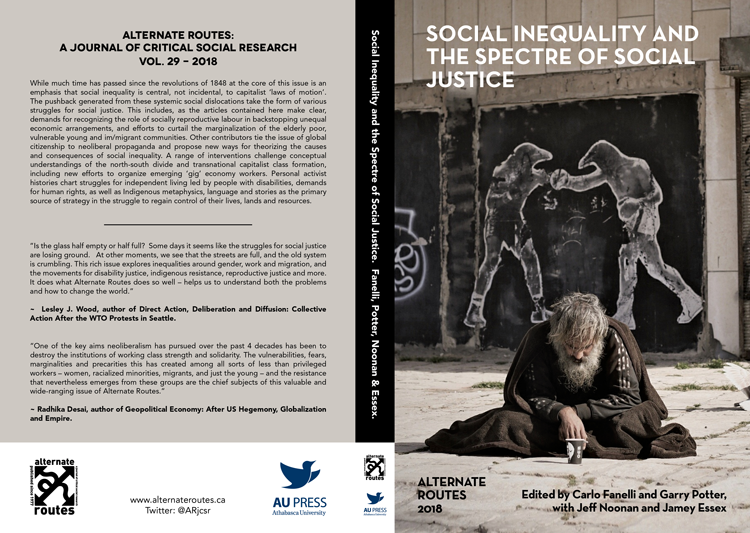Unpaid Work, Coercion and the Fear Economy
Abstract
Unpaid work, as a sociological construct, initially emerged in relation to reproductive labour and, in particular, women’s unpaid household work. However, unpaid work, in the sense of socially required and routinized labour that is normatively not compensated in terms of monetary and other tangible mechanisms of exchange, has mushroomed in the context of the grim economy. Here, the authors locate unpaid work historically by considering the direct physical force that underlies slavery and work within total institutions, and then analyze the contemporary subtle, indirect pressures exercised by hegemonic ideologies to sustain unpaid internships and unremunerated working days. Secondly, we argue that unpaid work is expanding in the current historical/economic context. Finally, we propose that shifts in the nature of the capitalist economy and the evolution of the so-called ‘fear’ economy along with the related expansion of the neoliberal state should be seen as key factors precipitating the growth in unpaid work and, therefore, a dramatic intensification of patterns of exploitation.Downloads
How to Cite
Duffy, A., & Pupo, N. (2018). Unpaid Work, Coercion and the Fear Economy. Alternate Routes: A Journal of Critical Social Research, 29. Retrieved from https://alternateroutes.ca/index.php/ar/article/view/22445
Issue
Section
Articles
License
Articles are published in Alternate Routes: A Journal of Critical Social Research under the Creative Commons "Attribution/Non-Commercial/No Derivative Works" Canada licence.
The copyright for the articles published in this journal is retained by the authors, with first publication rights granted to the journal. By virtue of their appearance in this open access journal, articles may be used, with proper attribution, in educational and other non-commercial, not-for-profit settings. The submission of a manuscript to Alternate Routes will be taken to mean that the author understands and agrees to the following:
- the manuscript represents original work not previously published;
- the manuscript is not being considered elsewhere for publication in the same language (publication elsewhere in an alternate language does not preclude acceptance of submission to Alternate Routes);
- appropriate written copyright permissions have been secured for republication of any copyrighted material contained in the manuscript;
- copyright for this article is retained by the author, with first publication rights granted to Alternate Routes;
- by virtue of its appearance in this open access journal, it is understood that the article is freely available for use, with proper attribution, for educational and other non-commercial purposes;
- reuse of the article for commercial purposes by anyone other than the author requires permission of the author;
- the author agrees to cite Alternate Routes as a source whenever h/she later republishes or reuses the article in other platforms.


